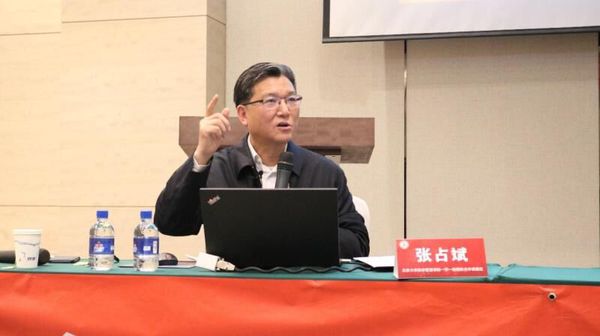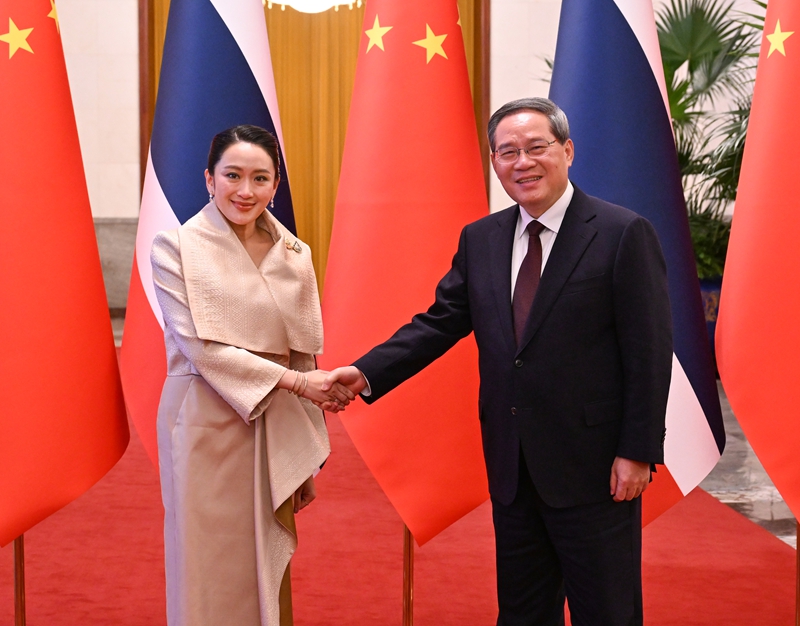Thailand-Cambodia Formally Negotiated, China And The United States Sent Personnel To Attend The Meeting, And Petton Made An Action To Go To The Border To Condolences To Refugees
Thailand-Cambodia Formally Negotiated, China And The United States Sent Personnel To Attend The Meeting, And Petton Made An Action To Go To The Border To Condolences To Refugees
Whether the Kuala Lumpur negotiations can achieve substantial breakthroughs depends on three key variables: one is the actual effectiveness of the US tariff threat - Cambodia's single economic structure
After five days of fierce firefighting, both Cambodia and Thailand began to realize that the situation seemed to be developing out of control. Faced with the threat of the United States' tariff negotiations and China's continuous promotion of persuasion of peace and negotiations, Thailand and Cambodia have finally begun to prepare for peace talks and seek to end the conflict.

The escalation of the border conflict between Thailand and Cambodia: historical grudges and real games intertwined
In the early morning of July 24, fierce fire broke out between Thailand and Cambodia in disputed border areas. The two sides used heavy weapons such as rocket launchers and F-16 fighter jets, and the conflict quickly escalated into the most serious military confrontation in recent years. The fuse of this crisis seems to be a coincidence during border patrol, but in fact it is a concentrated outbreak of the territorial disputes and domestic political games between the two countries for a century.

The core of the dispute between the two countries is focused on the land about 4.6 square kilometers around the Paveyah Temple. In 1962, the International Court of Justice of the Hague ruled that the temple belonged to Cambodia, but Thailand always claimed sovereignty over its surrounding territories, resulting in many armed conflicts between the two countries in 2008 and 2011. At the end of May this year, Thai soldiers triggered landmines injuries in disputed areas, becoming a direct trigger for a new round of conflict. What is more complicated is that the leaked call recording of former Thai Prime Minister Petton and Cambodian Sen's Chairman Hun Sen completely intensified the conflict between the two countries. Petton called Hun Sen "uncle" on the phone and complained that the Thai military was "reckless" and was denounced as "traitor" by Thai domestic public opinion, which eventually led to her suspension by the Constitutional Court on July 1.

After the conflict broke out, the two sides quickly recalled the ambassadors, closed the border ports, and diplomatic relations were downgraded to the agency level. As of the 27th, the conflict has killed 13 civilians and 1 soldier in Thailand and displaced 37,000 people in Cambodia. The stalemate on the battlefield made both sides realize the risks of the war quagmire: Although Thailand has advanced equipment such as F-16 fighter jets, Cambodia has built a solid defense line based on its terrain advantages; Cambodia is facing pressure of economic sanctions, and its exports to the United States account for 28% of the total foreign trade volume, and the sword of Damocles, which the United States threatens to impose a 36% tariff, hangs above its head.

Kuala Lumpur Peace Talk: A Delicate Balance under Sino-US Trouble
Faced with the risk of out-of-control situations, China and the United States have adopted completely different intervention strategies. US Secretary of State Rubio announced on July 27 that Thailand and Cambodia agreed to hold high-level talks in Kuala Lumpur, and the US will send personnel to assist in the negotiations, but it clearly links the trade agreement to the ceasefire - the Trump administration threatens that if a ceasefire fails to reach a ceasefire before August 1, tariff sanctions will be imposed on both countries. This "carrot and stick" strategy not only continues the United States' traditional influence in Southeast Asia, but also implies the intention to curb China's expansion in the region.

In contrast, China's role is more low-key and pragmatic. A spokesperson for the Ministry of Foreign Affairs repeatedly called on both sides to "maintain restraint" and at the invitation of ASEAN's rotating chairman Malaysia, sent senior diplomats as observers to attend the meeting. China and both countries maintain close cooperation: 70% of Cambodia's weapons procurement comes from China, while Thailand is an important partner of China's "Belt and Road" initiative in Southeast Asia. Ge Hongliang, an expert on the ASEAN issue of Guangxi University for Nationalities, pointed out that China has always adhered to the principle of "non-interference in internal affairs". The purpose of this meeting is to convey the signal that "peaceful resolution of disputes is in the interests of all parties" and avoid conflicts becoming victims of Sino-US game.

On the afternoon of July 28, Acting Prime Minister Putan and Cambodian Prime Minister Hon Manai formally met in Kuala Lumpur. As the host, Malaysian Prime Minister Anwar proposed compromise plans such as "phase withdrawal of troops" and "establishing demilitarized zones". But the negotiations were deadlocked at the beginning: Thailand asked Cambodia to withdraw from the disputed area first, while Cambodia insisted on demarcating the boundaries based on the ruling of the International Court of Justice. During the meal, the U.S. representative repeatedly emphasized that "a ceasefire is the prerequisite for trade negotiations", while the Chinese representative suggested "restarting the Joint Border Commission mechanism", and the positions of the two sides were significantly different.

Petton's political breakthrough: The power game behind border condolences
Just as the negotiations in Kuala Lumpur were in full swing, former Thai Prime Minister Petton, who was suspended, launched a carefully planned "image defense battle". On the 27th, she led the Prime Minister's Office Director, the Minister of Education and other cabinet members to visit the Surin Mansion Asylum Center on the Thai-Cambodia border to visit the refugees. The scene showed that Pettontan was wearing a plain shirt, shook hands and talked with the displaced people one by one, promising the government to "accelerate the reconstruction of his homeland" and instructed the Ministry of Culture to evaluate the damaged historical sites.

This condolence action was interpreted by political observers as a key move for Petton to restore his political reputation. Since the call recording incident, her approval rating plummeted from 30.9% to 9.2%, and calls for her resignation within the Thai party are growing. By going deep into the frontline, Petton tried to create an image of "focusing on the people" and "stand up in times of crisis", while also implying that the provisional government was ineffective in responding to conflicts. What's more subtle is that she chose to act on the day of the negotiations between Putan and Kuala Lumpur, forming a contrast between "people-friendly in the rear" and "compromise in the front", and cleverly compete for the right to speak for public opinion.

However, this move also has hidden risks. The Thai military expressed dissatisfaction with Pettontan's "overpower" behavior, and the deputy spokesperson of the Army said bluntly that "government-level negotiations and front-line combat are two different things." Conservative media questioned her "using refugees to show" and asked her to focus on responding to the Constitutional Court investigation. It is interesting that in his condolences, Petton specifically mentioned that "the Ministry of Foreign Affairs has been asked to clarify the facts to the international community", implying that she is still trying to influence diplomatic decision-making, which is friction with the principle of "unified foreign" emphasized by the Provisional Government.

Situation Forecast: Dawn of Peace and Reefs coexist
Whether the Kuala Lumpur negotiations can achieve substantial breakthroughs depends on three key variables: one is the actual effectiveness of the US tariff threat - Cambodia's economic structure is single and it is difficult to withstand the impact of sanctions; the second is the intensity of China's persuasion of peace and negotiations - China may exert influence by increasing investment in Cambodia and promoting China-Thailand railway cooperation and other bargaining chips; the third is the stability of Thailand's political situation - if Petton can restore power before the Constitutional Court's ruling, it may change the direction of negotiations.

At present, both sides have sent a signal of limited compromise: Thailand agreed to establish a "temporary buffer zone" in the disputed area, while Cambodia expressed its willingness to restart the negotiations between the Joint Border Commission. However, the core contradiction - the issue of territorial ownership around Baiweixia Temple still requires the intervention of international judicial institutions. It is reported that Cambodia has secretly submitted a new arbitration application to the International Court of Justice of the Hague, trying to make a final decision through legal means.

For China, this crisis is both a challenge and an opportunity. If the ceasefire can be promoted, it will consolidate China's image as a "peacemaker" in Southeast Asia; if the conflict becomes long-term, it may affect the promotion of major projects such as the China-Thailand Railway and Cambodia hydropower stations. China's best strategy is to "be an ASEAN partner, not an opponent of the United States", to eliminate geopolitical suspicion by strengthening regional economic cooperation.

Petton's political destiny is also full of variables. Her Constitutional Court hearing will be held in mid-August, and if it can be proved that the call recordings have not harmed national interests, there will still be a chance to return to politics. But the attitude of the Thai military is crucial - Army Commander Sulayu recently hinted that "national security is above all political game", which may be a silent warning to the Petton faction.

This five-day border conflict is essentially a superposition product of traditional territorial disputes, domestic political crises and geopolitical games between major powers. The confrontation at the Kuala Lumpur negotiating table is just the tip of the iceberg. True peace requires both sides to transcend historical grievances and find a balance between sovereign transfer and economic interests, and also requires external forces such as China and the United States to show restraint and wisdom.







